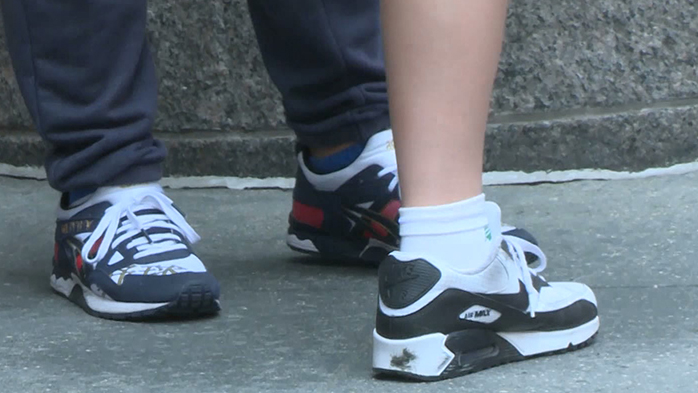American shoemakers are warning that the U.S.-China trade war could tread on their business. Nearly all shoes sold in the U.S. are imported. Higher tariffs could see customers footing the bill, as CGTN’s William Denselow reports.
Kendell Roberts has been collecting sneakers for more than 15 years. He rents a storage locker in New York to house his 375 pairs.
He’s spent around $50,000 on shoes. And higher tariffs could soon mean higher prices for collectors like him.
“There’s people that may not have the money to just buy any pair of sneakers that they want. So higher tariffs now, they may have to dial back on buying certain sneakers and have to compromise on what they want,” Roberts said.
Last year, 2.5 billion pairs of shoes were imported to the U.S., and more than half came from China.
Imported shoes are already subject to duties, and the Trump administration is threatening a new round of tariffs on an additional $300 billion worth of Chinese goods. That could mean an added 25 percent to the price tag.
The global sneaker industry is valued at an estimated $55 billion. Some retailers believe tariffs could alter consumer behavior.
According to Bernie Gross, the creative director of Extra Butter, “If the core price is inherently going up, it might actually force the consumer to really only consider that top tier, that premium product, because you’re better off getting the bang for your buck then.”
Those at this New York boutique believe demand for high-end footwear will remain robust but think big-box retailers could feel the pinch.
More than 170 footwear companies – including Nike and Under Armour – have written to the Trump administration calling for their products to be removed from the tariff list. They say a failure to do so would be catastrophic for the industry, consumers and the U.S. economy.
The Footwear Distributors and Retailers of America warn a tariff hike could cost shoppers an extra seven billion dollars a year.
And the trade war is already impacting how some footwear makers operate.
“Firms are A,B,C – Anywhere But China,” explains Joseph Foudy, a professor at New York University’s Stern School of Business. “And so they just radically reducing their exposure because even if we get an agreement today, who’s to say that it doesn’t break down, and we’re not looking at a new round of tariffs late this year or early next year?”
The leaders of the U.S. and China are slated to meet at the upcoming G20 summit. Footwear companies hope they can walk away with a plan to ease trade tensions and take some tariffs off the table.
 CGTN America
CGTN America
